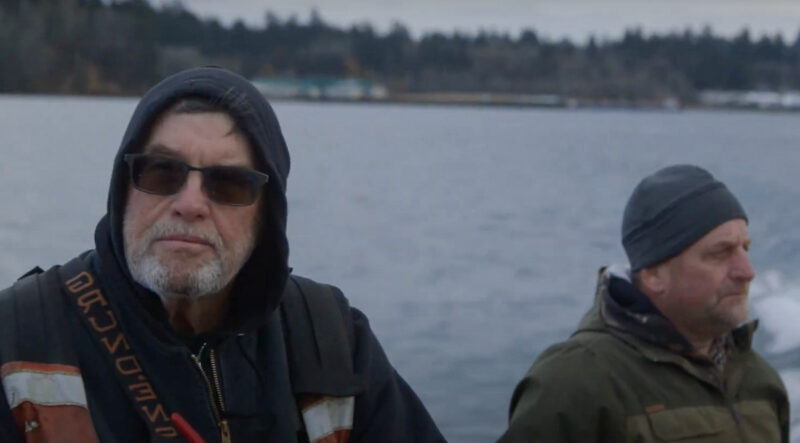Aquaculture workers fight back against fish farm ban
Show us the science that is killing our jobs demand Washington State’s fish farm workers in a new aquaculture advocacy campaign
By Fabian Dawson
SeaWestNews
Aquaculture workers in Washington State are calling on legislators to investigate the “unilateral and unscientific decision” to shut down fish farms operating in the Puget Sound.
The workers are also asking Hilary Franz, Washington’s Commissioner of Public Lands who made the decision, to visit their farms and explain to them the science she relied on to issue the ban.
Franz, last November, suddenly cancelled the leases of Canadian seafood farmer Cooke Aquaculture Pacific, which is in partnership with Jamestown S’Klallam Tribe to raise Steelhead, and followed it up with an executive order to ban the State’s 40-year tradition of fish farming in Puget Sound.
Both Cooke and the Jamestown S’Klallam Tribe have filed legal challenges against the ban, which comes after the Washington State Supreme Court unanimously found the claims propagated by anti-fish farming activists, including Franz’s allies, to be without merit.
A broad range of US national, state, and species-specific trade associations, fisheries scientists, resource economists, and veterinary medicine professionals, have also sent Franz a letter saying they are concerned at the lack of peer-reviewed science and historical data that would support the ban.
Franz, who is seeking re-election as the commissioner with an eye on the governor’s mansion, hopes her move will get her the much-needed votes from her allies in the anti-fish farming lobby.
“Hillary Franz has never been out on this farm, and I don’t think she’s ever been on any fish farm once in her entire life…I would love for her to take a tour,” said one of the workers featured in the video released as part of a new campaign organised by the Northwest Aquaculture Alliance (NWAA).
“Hilary Franz needs to act like a true leader and explain to our farmers who lost their livelihoods, just what science she used to make this harmful decision. She refuses to do that,” said Jeanne McKnight, NWAA Executive Director.
In its new www.stophilaryfranz.com grass-roots advocacy campaign, NWAA appeals to Washington citizens, asking them to send a letter to state legislators requesting an examination of Franz’s actions.
“This unscientific ban on commercial net pens shows that Hilary Franz is playing politics with your dinner plate—at the expense of hard-working, dedicated people who have made the production of nutritious seafood their life-long career,” McKnight said.
“It’s outrageous that Franz ignored multiple peer-reviewed scientific studies proving the ecological safety of farming fish and completely disregarded a unanimous Supreme Court decision affirming the legality of farming native steelhead in our state waters. We are outraged that she completely ignored the multi-year comprehensive study, conducted right here in Puget Sound showing no significant adverse impacts on endangered species by fish farms operating in the state.”
The NWAA in a statement said farmers across the state consider it shameful that Commissioner Franz, flanked at a celebratory press conference by well-known anti-aquaculture and anti-commercial fishing activists, would gloat over destroying an important food production sector and killing the jobs of Washington farmers just one week before Thanksgiving last Fall.
“It’s clear that Hilary Franz was trying to score political points with activist groups…this is not the type of leadership we expect from Franz or other Washington elected officials, especially at a time when food prices are at an all-time high and good jobs are scarce in rural communities.”
The Washington State ban mirrors a similar episode of political over-reach in British Columbia involving the order by Federal Fisheries Minister Joyce Murray to phase out salmon farms in the contentious Discovery Islands.
Murray, a prominent advocate to end open-net salmon farming in British Columbia also walked back on commitments to respect the rights of First Nations who want the aquaculture operations in their traditional territories.
The decision to close the farms was made despite the government’s own scientists producing 10 extensive peer-reviewed reports showing the marine operations have virtually no impact on wild stocks migrating through the area.
Canada’s Federal court has already ruled that salmon farming in the Discovery Islands pose less than a minimal risk to migrating wild stocks, based on the evidence it has seen.
A coalition of aquaculture-dependant First Nations is now calling for the removal of Murray saying she can’t be “trusted” to make a thoughtful and unbiased plan in regard to the future of salmon farming in British Columbia.
(Screenshot from a new video campaign organised by the NWAA shows workers at a Washington State fish farm)

